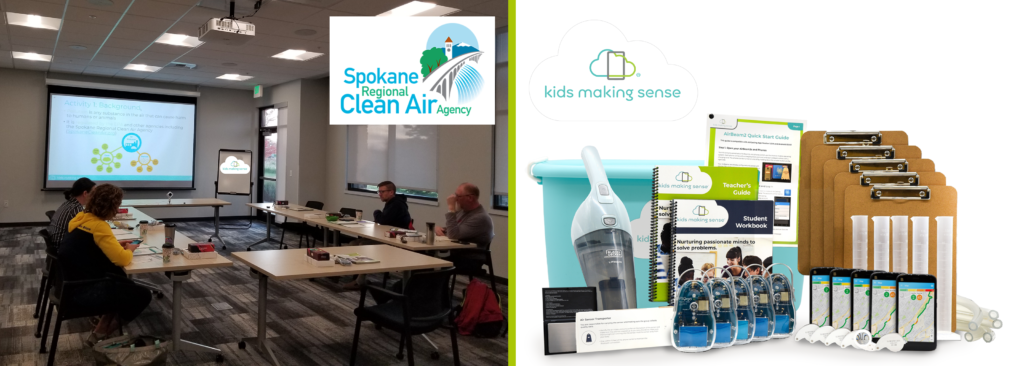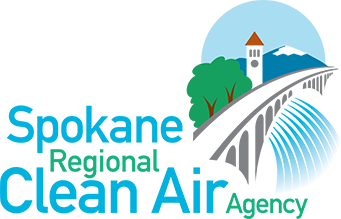more about
air quality sensors?
Using Sensors to Understand Air Quality
Air sensors are lower-cost, portable devices that can estimate concentrations of some air pollutants. There are many sensors on the market that are available to anyone. Prices start around $200.
In the Spokane-area, the use of personal air quality sensors is growing. Private individuals, as well as organizations like schools, libraries, sport associations, and outdoor event organizers are using sensors as a tool to better understand air quality conditions at their location(s).
Although sensors may provide less accurate data than the data we provide from the regulatory monitors, we support and encourage the use of air quality sensors. We believe they can be a useful tool for residents, educators, and students to explore indoor and outdoor air quality.
Air Sensors at Schools
Air sensors are great tools for educators to engage with their students around the topic of air quality. With the assistance of a state grant and support from three local business sponsors, Spokane Clean Air implemented the Kids Making Sense® program in eight pilot schools during the 2022-23 school year. Teachers from each school completed their trainings in November and implemented the program in their classrooms. Read more in this pilot program report.

WE ARE RECRUITING middle and high schools in Spokane County to participate during the 2023-24 school year! We ask that you send two educators to the next round of Kids Making Sense® (KMS) trainings. By attending the training, each school receives a KMS classroom kit valued at $2600. Contact Lisa Woodard at LWoodard@spokanecleanair.org and reserve today!
Special thanks to the Washington State Department of Ecology for providing the grant funding to make this program possible. Thanks also to these participating organization and classroom sponsors:
- Spokane Public Library and Spokane County Library District
- Spokane Public Schools
- Cheney School District
- Medical Lake School District
- West Valley School District
- Avista
- Central Pre-Mix/Inland Asphalt
- Hotstart Thermal Management
Air Sensors at Libraries
With grant funding from the Washington State Department of Ecology, and in partnership with Spokane County Library District and Spokane Public Library, every library branch was provided with stationary PurpleAir® sensors. Data from these sensors, and from those located across the globe, are available for viewing here.
Hand-held Air Sensor kits will be available for community members to check-out in early 2024 at Spokane Public Library. Check back here for details or contact Central Library for details (509) 444-5300

